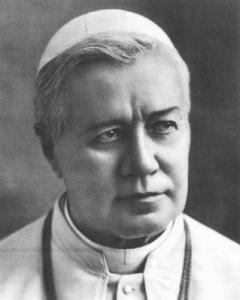How To Make Anonymity Work
The recent events with “Anonimi della Croce” move me to write one or two considerations about anonymity.
Anonymity protects the identity of the blogger. There are many good reasons to blog anonymously. However, one must be aware of this: that being anonymous, the author will have no possibility to attach any credibility to his name, qua name. The only credibility he will have is the one of the argument he makes.
Homer was a great poet (or poets). You don’t need to know his real identity. His poetry speaks for him. You read and love his poetry, and could not care less whether you know the name of its author or not. What count is what is in the tin. “A rose by any other name would smell as sweet”.
The same happens with an anonymous blogger. If a Catholic Homer started to write beautiful verses in defence of the Church people would be drawn to his site by the poetry itself, not the name of its author. If, more prosaically, a Catholic blogger like yours truly starts to write his own considerations on the net, his pen name will never have any weight. The only thing that will ever count is whether the argument makes sense. If that particular rose smells sweet, you don’t need to know what name it has. If it doesn’t, exactly the same happens. This is the reason why anonymous Catholic blogs (as well as all sorts of anonymous sites, from whistleblowing ones to Wikileaks) work. The proof of the pudding is in the eating.
This does not work anymore if an anonymous blogger starts publishing things which, in order to be believed, depend on his name. If I say “I have it from a reliable source that Francis is going to dance in drags in Saint Peter” this is not an argument that can stand in itself: it’s a piece of information that can be true or false. The reader needs an established name, and an established history of true revelations, to lend credibility to this. An anonymous chap saying so will not do the trick.
If, however, I say “I will now explain to you why Francis is a heretic” and proceed to make the argument, this argument will not need my name to be believed. It will stand, or fall, without any need for it. It is not about whether the information is true or false, it is about whether the argument persuades you or not. This is the sphere in which Catholic bloggers must operate.
Anonymity on the Internet is, inter alia, good because of this: that you always need to make a good argument, because no one will believe anything just because of you saying so.
M
Posted on April 20, 2017, in Traditional Catholicism. Bookmark the permalink. 1 Comment.




















Pingback: Canon212 Update: Opus Dei and the MoneyDissolution of the Faith – The Stumbling Block